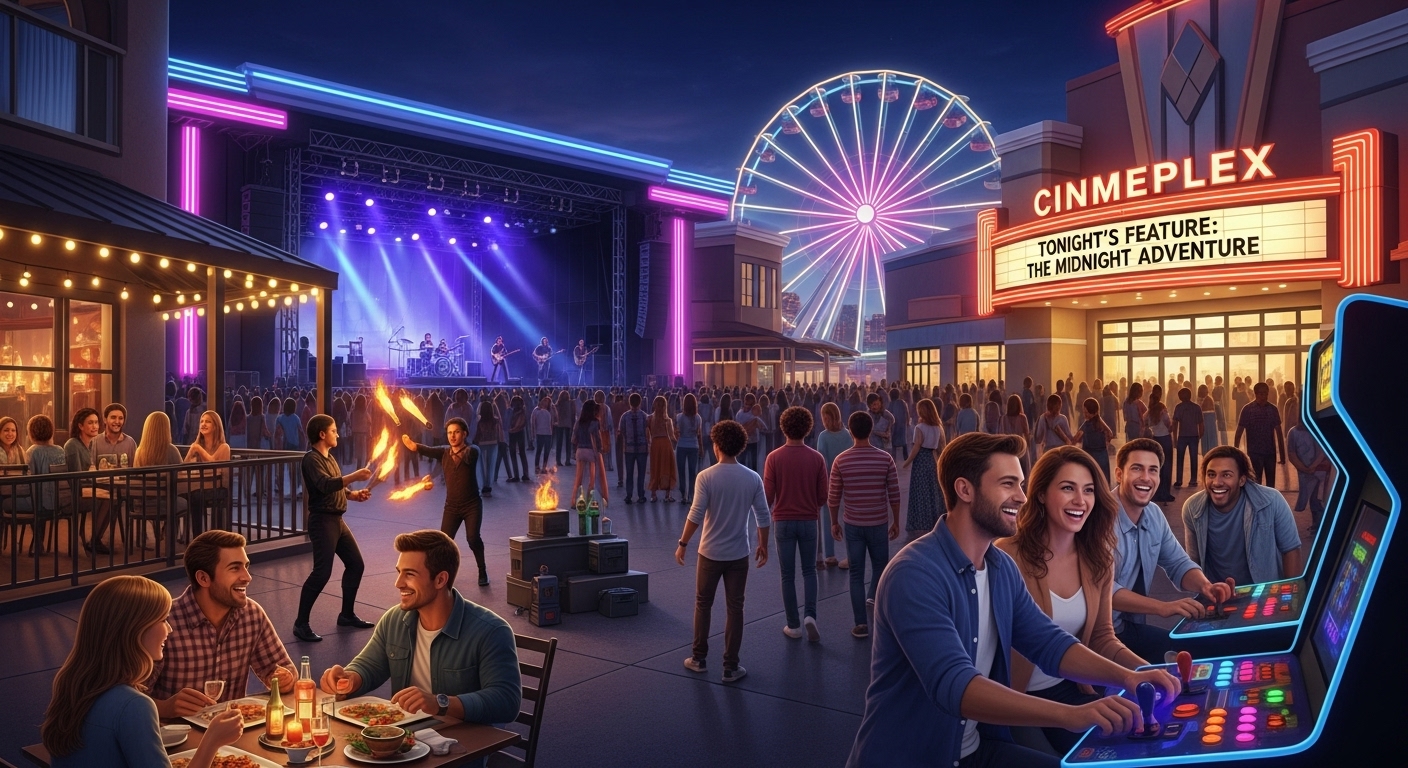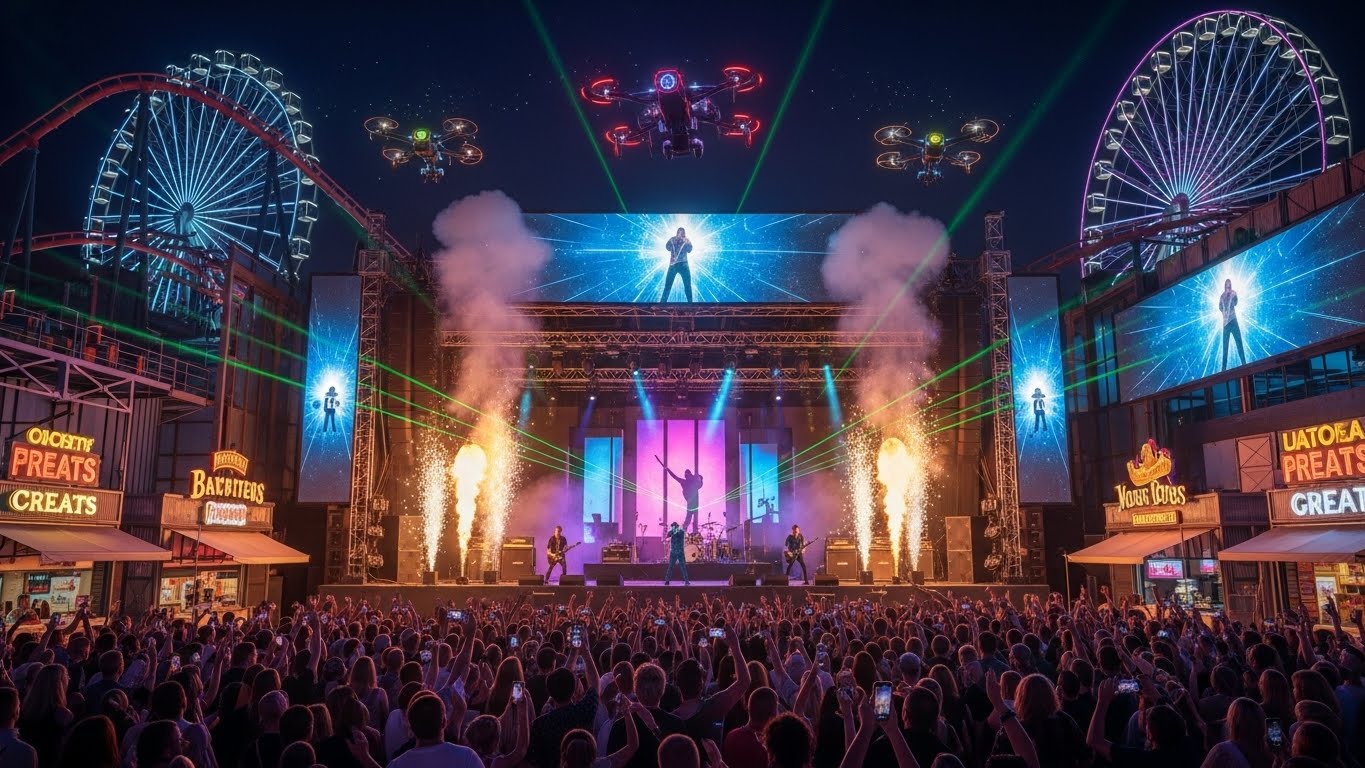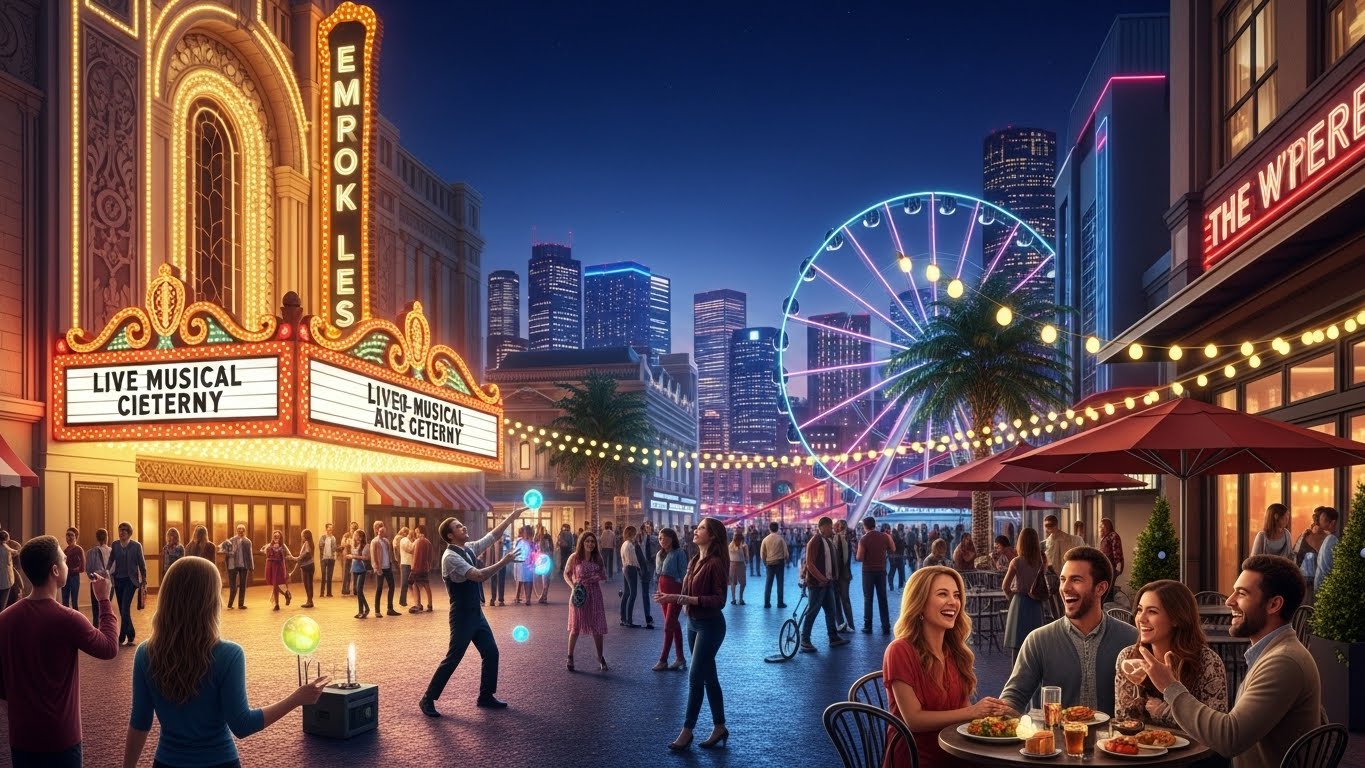Entertainment has always been a cornerstone of human society. From ancient storytelling around campfires to today’s digital streaming platforms, the concept of amusement has taken countless forms, adapting to every era and culture. People have always sought ways to escape reality for a while, to laugh, cry, or simply feel amazed by the creativity of others. This desire for joy and distraction is at the heart of what makes entertainment not just a pastime but a vital part of our existence.
In today’s fast-paced world, entertainment is more than just fun. It plays a significant role in mental health, cultural growth, technological innovation, and even personal identity. Whether it is movies, music, gaming, theatre, or social media, entertainment is woven into our daily routines and emotional well-being.
In this blog, we will take a deep dive into the vast world of entertainment, exploring its history, forms, impacts, and the way it continues to evolve with each passing year.
The Historical Roots of Entertainment
Long before the age of screens and social media, people found joy in simple forms of entertainment. Storytelling was one of the earliest ways humans entertained themselves and others. Ancient myths, legends, and fables not only amused but also educated communities about morality, bravery, and cultural traditions.
Gladiator fights in Rome, theatre in Greece, and shadow puppetry in Asia are clear examples of how entertainment was both an art form and a social gathering. People came together not only to enjoy performances but also to feel a sense of belonging. Festivals, dances, and music played an important role in shaping communities and keeping traditions alive.
Over centuries, entertainment grew alongside human civilization. The invention of the printing press made books widely accessible, offering knowledge and leisure. Later, technological revolutions such as the radio, cinema, and television transformed entertainment forever, making it more universal and accessible.
The Modern Landscape of Entertainment
Today, entertainment has expanded into a multi-billion-dollar industry that touches nearly every part of life. There are countless forms to explore, each catering to different tastes and moods.
Movies and Television
Cinema and TV shows have been at the heart of entertainment for decades. Movies transport audiences into new worlds, allowing them to live stories they could never experience otherwise. Television offers not just drama and comedy but also documentaries, reality shows, and live broadcasts that keep people connected to the world.
Streaming services have revolutionized how we consume films and shows. Instead of waiting for scheduled broadcasts, audiences now have the power to binge-watch entire seasons at their convenience.
Music
Music has always been a universal language. It transcends barriers of culture and geography, making people feel connected through rhythm and melody. From classical symphonies to modern rap, music offers endless varieties that serve as a soundtrack to our lives. Concerts, festivals, and music videos create shared experiences that bring millions together.
Gaming
In recent years, video games have risen to dominate the entertainment scene. Once considered a niche hobby, gaming is now one of the largest industries worldwide. Games provide interactive experiences, immersing players in virtual worlds full of adventure, competition, and creativity. Online multiplayer platforms allow friendships to form across continents, turning gaming into a global community.
Theatre and Live Performances
While movies and TV often take the spotlight, traditional theatre and live performances continue to thrive. Plays, musicals, stand-up comedy shows, and concerts bring unique energy that recorded media cannot replicate. The thrill of a live audience reacting in real time makes these events unforgettable.
Sports
Sports are one of the oldest and most universal forms of entertainment. From local matches to international tournaments, they captivate millions of fans. Sporting events bring people together to celebrate athleticism, teamwork, and national pride. For many, cheering for their favorite team or player is not just fun but an essential part of their identity.
Social Media
Social media platforms have transformed how people consume and create entertainment. Short videos, memes, and live streams provide quick doses of amusement. More importantly, social media has made entertainment interactive, giving ordinary people the chance to become influencers, comedians, or content creators.
Why Entertainment Matters
Entertainment is often dismissed as something shallow, but its importance cannot be underestimated. It plays multiple roles in society and in personal life.
Stress Relief
In our busy lives, stress has become unavoidable. Entertainment provides an escape, allowing people to relax and recharge. Watching a comedy, playing a game, or listening to music helps clear the mind and restore energy.
Emotional Connection
Entertainment helps us feel emotions we might not otherwise experience. A heartfelt movie can make us cry, while a thrilling sports match can bring excitement. This emotional release makes life richer and more meaningful.
Social Bonding
Entertainment is one of the best ways to connect with others. Whether it is watching a movie with friends, attending a concert, or discussing the latest TV series online, entertainment creates shared experiences that strengthen bonds.
Education and Awareness
Not all entertainment is purely for fun. Documentaries, historical dramas, and even video games often carry educational value. They teach us about history, science, cultures, and important social issues in an engaging way.
The Evolution of Entertainment Technology
Technology has always been a driving force in how entertainment develops. Each major invention has expanded what is possible.
- The radio brought live shows and music into people’s homes.
- The television revolutionized storytelling through visuals.
- The internet gave us instant access to endless content.
- Virtual reality and augmented reality are now creating immersive experiences that blur the line between fantasy and reality.
With every new technological step, entertainment becomes more accessible, more personalized, and more interactive.
The Business of Entertainment
Behind the glamour and fun lies a massive industry. Entertainment is not just about creativity; it is also about economics. Movies, music, sports, and gaming generate billions of dollars annually. Celebrities and influencers become brands themselves, shaping fashion, trends, and consumer behavior.
Advertising, merchandise, sponsorships, and ticket sales make entertainment one of the most profitable industries in the world. The growth of streaming services, esports, and global fan bases continues to fuel this financial success.
The Dark Side of Entertainment
While entertainment brings joy, it also has challenges.
- Addiction: Excessive use of social media, video games, or binge-watching can affect productivity and health.
- Unrealistic Standards: Movies and social media often portray idealized lifestyles, causing insecurity among audiences.
- Privacy Issues: With celebrity culture and online content, both stars and fans face issues of privacy and safety.
- Cultural Homogenization: Global entertainment sometimes overshadows local traditions, leading to loss of cultural diversity.
Being aware of these drawbacks helps us enjoy entertainment in a balanced and healthy way.
The Future of Entertainment
As technology advances, the future of entertainment promises even greater transformations. Virtual reality headsets, holographic concerts, AI-generated music, and interactive films are only the beginning. The blending of reality and imagination will redefine how we perceive fun.
Personalized entertainment, powered by artificial intelligence, will ensure that each person’s preferences are catered to. We may see a future where everyone has their own unique version of a movie or concert.
Sustainability will also become important, as the industry adapts to eco-friendly practices. Virtual events, digital platforms, and reduced travel for global entertainment will contribute to a greener future.
Conclusion: Entertainment as the Soul of Society
Entertainment is far more than a distraction. It is a mirror of society, reflecting our dreams, struggles, and creativity. It helps us escape, connect, and learn. From the ancient world of storytelling to today’s digital wonders, entertainment has always evolved to meet the needs of humanity.
As we move forward, the way we enjoy entertainment will continue to change, but its essence will remain the same. It will always be about joy, connection, and the magic of shared experiences. Entertainment, in all its forms, is the heartbeat of culture and the soul of society.



